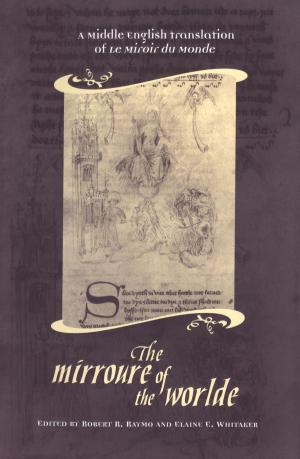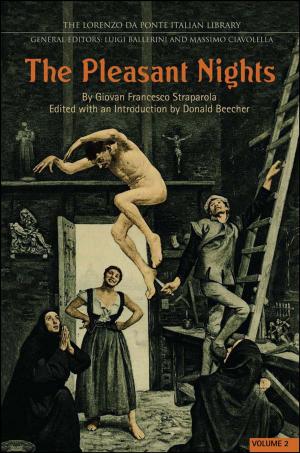The Legendary Sources of Flaubert's Saint Julien
Fiction & Literature, Literary Theory & Criticism, Medieval, French, European| Author: | Benjamin Bart, Robert Cook | ISBN: | 9781442633322 |
| Publisher: | University of Toronto Press, Scholarly Publishing Division | Publication: | December 15, 1977 |
| Imprint: | Language: | English |
| Author: | Benjamin Bart, Robert Cook |
| ISBN: | 9781442633322 |
| Publisher: | University of Toronto Press, Scholarly Publishing Division |
| Publication: | December 15, 1977 |
| Imprint: | |
| Language: | English |
The sources for La Légende de Saint Julien l’Hospitalier, one of Flaubert’s finest literary works, have long been the subject of numerous conflicting theories. The implications of the controversy are broad and important, not only for Flaubert’s work but also for our understanding of how writers generally use traditional material. Superficial resemblances have led critics to conclude that Flaubert relied heavily on a medieval tale of Saint Julian and that he borrowed details and specific phrases from his medieval predecessor. This book, by a world renowned specialist in Flaubert studies and a medieval philologist, demonstrates that the Légende is not medieval in structure or in spirit, and that its conception is distinctly modern; where Flaubert borrowed at all he used contemporary sources to recast the Julian legend in Romantic style. Bart and Cook establish definitely what legendary sources were and show how Flaubert came into contact with them. Their extensive commentary compares the sources and the Légende in detail, explains the circumstances under which Flaubert used his materials, and analyses how they were woven into the texture of his own tale.
The book makes available source material scattered throughout obscure periodicals, reproduces accurately and dates correctly important segments of Flaubert’s drafts and scenarios, and provides the first modern printed edition of the Alençon life of Saint Julian which Lecointre-Dupont adapted in 1838, thereby giving Flaubert indirect access to the old tale.
An introductory chapter explores the broader question of the development of legends and how a particular legendary sequence, embodying powerful themes, was amplified and made explicit from the twelfth century to Flaubert’s time.
The sources for La Légende de Saint Julien l’Hospitalier, one of Flaubert’s finest literary works, have long been the subject of numerous conflicting theories. The implications of the controversy are broad and important, not only for Flaubert’s work but also for our understanding of how writers generally use traditional material. Superficial resemblances have led critics to conclude that Flaubert relied heavily on a medieval tale of Saint Julian and that he borrowed details and specific phrases from his medieval predecessor. This book, by a world renowned specialist in Flaubert studies and a medieval philologist, demonstrates that the Légende is not medieval in structure or in spirit, and that its conception is distinctly modern; where Flaubert borrowed at all he used contemporary sources to recast the Julian legend in Romantic style. Bart and Cook establish definitely what legendary sources were and show how Flaubert came into contact with them. Their extensive commentary compares the sources and the Légende in detail, explains the circumstances under which Flaubert used his materials, and analyses how they were woven into the texture of his own tale.
The book makes available source material scattered throughout obscure periodicals, reproduces accurately and dates correctly important segments of Flaubert’s drafts and scenarios, and provides the first modern printed edition of the Alençon life of Saint Julian which Lecointre-Dupont adapted in 1838, thereby giving Flaubert indirect access to the old tale.
An introductory chapter explores the broader question of the development of legends and how a particular legendary sequence, embodying powerful themes, was amplified and made explicit from the twelfth century to Flaubert’s time.















